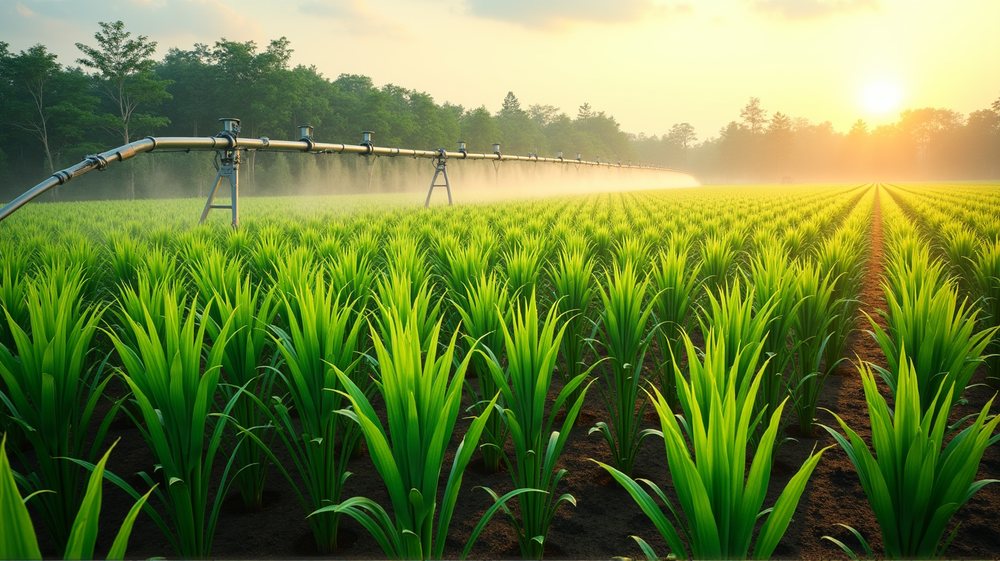Transforming Sugarcane: The Case for Drip Irrigation and Nutrient Management
In a world where agriculture faces relentless challenges, the need for innovative solutions becomes paramount. According to BusinessLine, Vikas Sonawane, the Chief Operating Officer at Netafim India, sheds light on how proper irrigation and nutrient management could revolutionize sugarcane productivity.
The Water Scarcity Conundrum
Areas like Marathwada are not unfamiliar with scarcity, and this has severely impacted sugarcane productivity. Consistent irrigation and balanced nutrient application are critical, yet often absent, leading to stagnant yields. Climate change further complicates matters, with unpredictable weather patterns increasingly putting crop health at risk. Rising temperatures and unexpected climatic events directly influence not just the yield but the very quality of the sugarcane produced.
Excessive Irrigation: A Double-Edged Sword
While sugarcane is traditionally water-intensive, over-irrigation by conventional methods deteriorates soil health and fertility. The assumption that more water equates to more yield could not be more flawed. Instead, this excessive saturation leads to issues such as waterlogging and soil salinity, resulting in long-term soil degradation.
A Glimmer of Hope: High-Yielding and Pest-Resistant Varieties
The introduction of high-yielding and pest-resistant sugarcane varieties could break this cycle of stagnation. This strategic move, along with meticulous land preparation and nutrient management practices, can potentially lift yields significantly.
Drip Irrigation: The Game-Changer
Drip irrigation stands front and center as a transformative approach to sugarcane cultivation. By providing precise water and nutrient delivery, this method promises increased productivity while preserving soil integrity. The government’s consideration to make drip irrigation mandatory signals a new era of agricultural policy, but substantial infrastructure and policy support are essential to make this vision a reality.
The E-20 Ethanol Mandate: A New Frontier
In light of an ever-growing interest in sustainable practices, the E-20 ethanol mandate could dramatically change the sugar industry. By boosting demand and creating a stable revenue for mills, it promises energy security while enhancing India’s stance on renewable energy.
Beyond Productivity: Strengthening the Biofuel Economy
This mandate also symbolizes a commitment to clean energy, with reduced carbon emissions and efficient sugarcane use propelling us toward key climate goals. The government’s efforts to incentivize biofuel production could lead to self-sufficiency by 2025, reducing fossil fuel reliance.
In reviewing the overall landscape, it’s clear that these innovations present a wealth of opportunities not only for sugarcane but across the entire agricultural sector in India. As the narrative continues, it remains to be seen what strategic steps will seize these opportunities, turning potential into progress.




